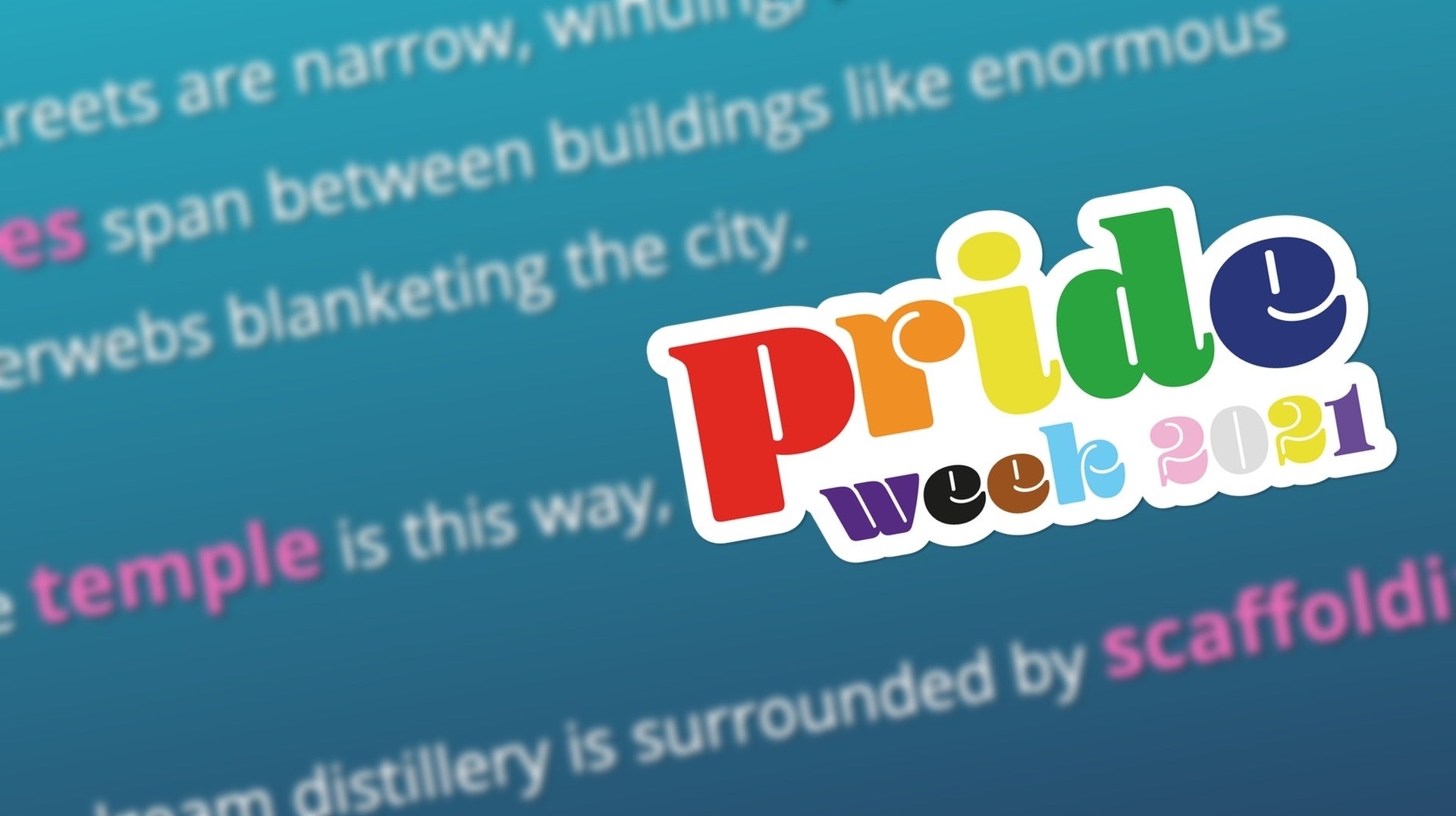Hello! All this week Eurogamer has been celebrating Pride with a series of stories examining the confluence of LGBT+ communities and play in its many different forms, from video games and tabletop games through to live-action role-play. Today, for the last of this year’s Pride Week features, Eli Cugini explores the way trans creators have embraced Twine interactive fiction.
Last summer, I read a tweet telling me that Ronald Reagan can use they/them pronouns for you while ordering you to do war crimes in the new Call of Duty. This was, of course, a boon for me, seeing as the only thing keeping me from a £59.99-with-microtransactions, time-to-shoot-some-commies FPS was the lack of gender-neutral options.
Jokes aside, as a gay who has played a lot of games by straight people, including straight people who think they can write convincing lesbians, I’ve been thinking a lot about this kind of surface-level representation. Honestly, Cyberpunk and COD can put in cosmetic trans options if they like, but I don’t really care. If I want to play a triple-A game in a trans or lesbianiacal fashion, I can probably make up a better way to do so than the developers can.
What I really care about is what queer and trans people can do with games, which is why I’ve been spending a lot of time on Twine. I came across Twine in 2020, eleven years after its launch and six or seven years after it was covered by every national newspaper in the US. (Being a 16-year-old Brit with a janky laptop during Twine’s heyday, I somewhat missed the bus.) If you don’t know what Twine is, it’s free, open-source software for creating interactive fiction that doesn’t require knowledge of a programming language. You might have heard of the Twine games Depression Quest or The Uncle Who Works for Nintendo, or watched Black Mirror’s movie-length episode Bandersnatch, which was storyboarded in Twine. I’ve found most of my favourite Twine games on itch.io and the Electronic Literature Collection.
Twine is also one of the few places in gaming where trans people have a strong, visible presence: Porpentine, Anna Anthropy, and a host of other trans developers – particularly trans women – have gained acclaim and local prominence for their creations in Twine. This is partly due to Twine’s accessibility to people without a lot of money or formal coding training, and partly because of how trans art works: Twine, and interactive fiction more generally, work really well for telling trans stories.
